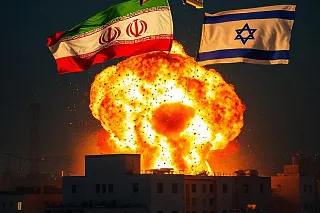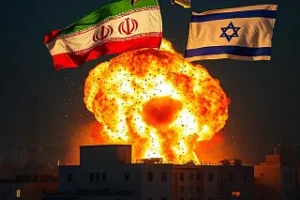The Secret Motive Behind the Urgency to Attack Iran.
Iran’s recent claims of acquiring Israeli nuclear facility documents have stirred significant international attention.
Iran’s recent claims of acquiring Israeli nuclear facility documents have stirred significant international attention. The Iran’s intelligence minister, Esmail Khatib, asserted that Iranian operatives seized a substantial collection of documents detailing Israel’s nuclear activities. These documents reportedly encompass strategic, operational, and scientific data, potentially implicating other nations such as the U.S. and European countries. However, Iran has not provided concrete evidence to substantiate these claims, and Israel has neither confirmed nor denied any breach of its nuclear facilities.
In a related development, the International Atomic Energy Agency (IAEA) has found Iran in breach of its nuclear obligations, citing its growing stockpile of uranium enriched to 60%—near weapons-grade—and its refusal to explain activities at three undeclared nuclear sites since 2019. This marks the first formal violation under the nuclear non-proliferation treaty in two decades and raises the potential for UN-wide sanctions to be reimposed. In response, Iran has announced countermeasures, including the planned opening of a third uranium enrichment plant and upgrading centrifuges at its Fordow facility.
Thanks for reading Strange’s Substack! Subscribe for free to receive new posts and support my work.
These developments heighten regional tensions, prompting the U.S. to evacuate non-essential diplomatic and military personnel in neighboring countries. Ongoing negotiations between Iran and the U.S. in Oman face challenges, with President Trump expressing doubts over reaching an agreement. Intelligence reports suggest Iran is close to attaining weapons-grade uranium capacity, fueling Israeli concerns that delay in any preventative action could be a strategic error.
Meanwhile, Iran insists its nuclear program remains for civilian use. The situation continues to evolve, and further developments are anticipated.
One of the undeclared concrete strategic motivations behind Israel’s reported urgency to consider military action against Iran lies in the sensitive intelligence breach Iran have acquired. According to Iranian statements, Tehran has obtained a trove of highly classified documents detailing Israel’s nuclear facilities, operational methods, advanced weapons programs, and covert collaborations with Western intelligence agencies, including the United States and European nations.
From Israel’s viewpoint, the very possession of such sensitive information by Iran presents an unprecedented security threat. The concern is not just the mere loss of secrets, but the window of opportunity Iran gains to thoroughly analyze, digest, and potentially exploit these materials. Such an intelligence windfall could enable Tehran to reverse-engineer advanced weaponry, uncover Israel’s nuclear capabilities and vulnerabilities, find-out intelligence personnel working for the Israelis and map out covert operations that may currently be obscured from Iranian intelligence.
By attacking sooner rather than later, Israel aims to disrupt Iran’s ability to fully process and operationalize this classified intelligence. The logic follows that a rapid strike could preempt Iran’s ability to leverage the documents for technological advancements or to bolster its own nuclear weapons program, which is already approaching near-weapons-grade uranium enrichment levels. Time is thus a critical factor; every day Iran spends studying the acquired classified sensitive data could translate into accelerated development of nuclear weapons, missile technology, or improved countermeasures against Israeli, and it allies defenses.
Furthermore, the implications extend beyond Israel-Iran dynamics. If Iran’s documents reveal joint operations or intelligence-sharing arrangements with Western countries, Tehran could exploit those insights to undermine alliances or to preempt Western strategic moves in the region. This amplifies the urgency for Israel to act decisively to contain the threat before it escalates into a broader regional security crisis.
In essence, Israel’s interest in striking Iran swiftly is rooted in a preemptive strategy: denying Iran the time and resources to absorb and utilize this highly classified intelligence, thereby preventing a qualitative leap in Tehran’s nuclear and military capabilities that could destabilize the entire Middle East security landscape.
Thank you for reading, please do share and become a member.












Post Comment